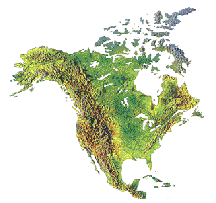
|
|
|
News Item, Sept. 15, 2001: Security will bring lasting delays The security measures imposed in the wake of this week's terror attacks will have a lasting impact on passengers traveling through the USA's already congested airports. Passengers will have to wait in longer check-in lines, carry more documentation, pass through more rigorous security checks and possibly bring fewer carry-on items aboard.
“It is important that an international organization such as ours demonstrates that it has the courage to continue in the face of adversity," said Mr. Frangialli. Delegates to the General Assembly will discuss how the events in the United States will affect world tourism, but WTO analysts agree that the true impact will be hard to determine.
"It is the first time that four aircraft have been hijacked at the same time, it is the first time that all US airports have been shut down and it is the first time that international air traffic has been thrown into such chaos-so it is very difficult, if not impossible, to draw conclusions in such unusual circumstances," said the Secretary-General. "The magnitude of the tourism crisis will also depend a great deal on what happens in the weeks to come. If further actions are confined to a single region of the world, there would be less repercussion," he added.
Three main factors are currently wreaking havoc on the tourism industry: lack of consumer confidence in the safety of air travel; uncertainty about the near future; and weakening of the global economy in recent months.
"The Gulf Crisis was very different, so we cannot take our evaluation directly from those years. In this case it is the United States that is most affected and the United States is the number one tourism power in terms of international receipts, domestic tourism and international spending," he said. "It is true that Americans are worried about travelling, but US outbound represents only 13% of the world total and experience has shown that tourists from other big generating markets such as Germany, the UK and Japan will continue to travel. They may divert their holidays to different parts of the world that are perceived as safer or stay closer to home, but they will still travel," he added. "More significantly, the United States is the largest economy in the world in terms of GDP, so what happens there has profound consequences for the economies of the rest of the world," he said. During the first eight months of 2001, world tourism was on track for an increase of 2. 5-3%, following an extraordinary growth rate of 7.4 per cent in the millennium year 2000. Barring widespread new developments, 2001 should still see positive growth for tourism, albeit at a slightly slower rate of 1.5-2%. Global tourism generated US$476 billion last year. "Not only are many tourists and business travellers-especially in the United States-postponing their trips, there are additional costs for the industry as it increases and improves security," said Mr. Frangialli. "Tourism businesses are seeing their profits squeezed between declining activity, the cost of new security measures and the increasing price of oil." But he said world markets are over-reacting when it comes to losses in the share prices of airlines and tourism companies.
"We shouldn't jump to conclusions," Mr. Frangialli said. "We have learned from experience that the tourism industry recovers very quickly from adversity." International air passengers declined during the Gulf War, from 280 million in 1990 to 266 million in 1991, but tourist arrivals crept up by 1.2% and receipts increased by 2.1%. "Despite all the conflicts we've had in the world over the past 50 years, there has never been one year that experienced a decline in tourism," said Mr. Frangialli. WTO is also preparing to celebrate World Tourism Day on 27 September. The host of this year's celebration is Iran and the theme is Tourism: a Tool for Peace and Dialogue among Civilizations-a focus now more necessary and appropriate than ever. For more information, please contact: Deborah Luhrman / Alla Peressolova WTO Press and Communications Tel. (34) 91-567-8100 Fax (34) 91-567-8218 Email: comm@world-tourism.org Internet: www.world-tourism.org Check Current
Status at American Airports
|
home


 WTO
Secretary-General Francesco Frangialli sent a message of
sympathy and
solidarity to the United States following the attacks, then
flew to a meeting
of tourism ministers from 11 CIS nations in Bishkek,
Kyrgyztstan, where a
declaration strongly condemning terrorism was
adopted. The 139-member
inter-governmental organization is also going ahead
with final preparations
for its bi-annual General Assembly set to open
on 23 September in Seoul
with an address by the President of the Republic
of Korea Kim Dae-jung, winner of the Nobel Peace Prize
in 2000. The
meetings will move to Osaka, Japan and be
opened by His Imperial
Highness the Crown Prince of Japan.
WTO
Secretary-General Francesco Frangialli sent a message of
sympathy and
solidarity to the United States following the attacks, then
flew to a meeting
of tourism ministers from 11 CIS nations in Bishkek,
Kyrgyztstan, where a
declaration strongly condemning terrorism was
adopted. The 139-member
inter-governmental organization is also going ahead
with final preparations
for its bi-annual General Assembly set to open
on 23 September in Seoul
with an address by the President of the Republic
of Korea Kim Dae-jung, winner of the Nobel Peace Prize
in 2000. The
meetings will move to Osaka, Japan and be
opened by His Imperial
Highness the Crown Prince of Japan.